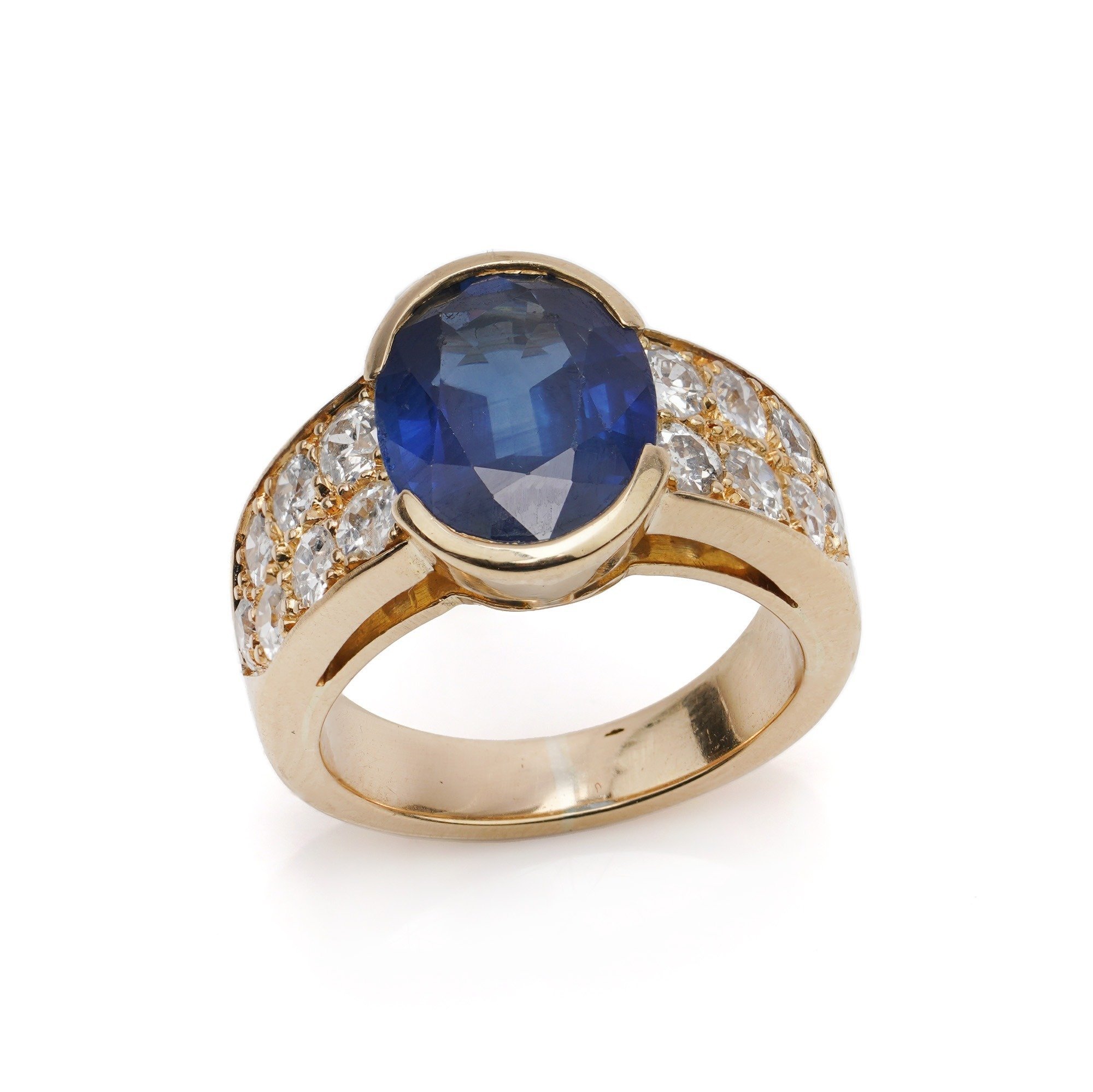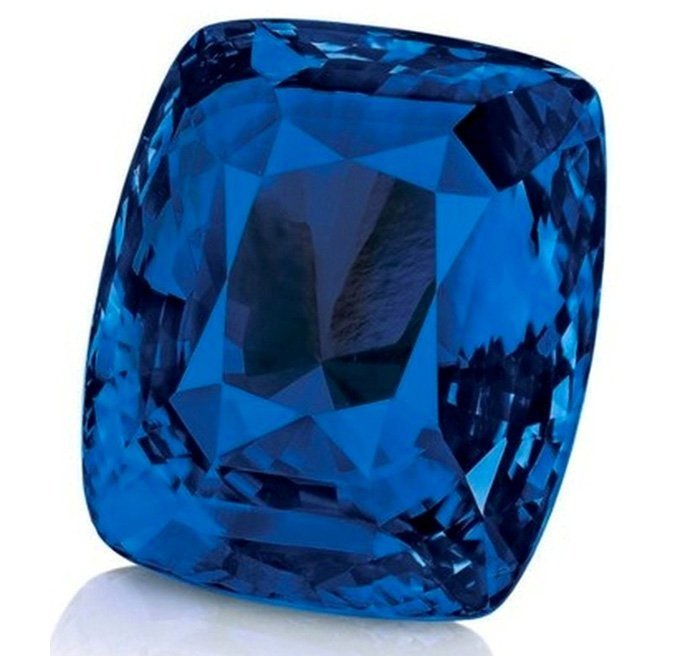Sapphire: A Gem of the Ages
Article of Contents
Blue sapphire ring, image courtesy of Mozeris fine Antiques
Introduction
Sapphire: A Gem of the Ages
2.1 The Discovery of Sapphire
2.2 Blue Sapphire Hardness
A World of Blue:
Celebrated Sapphires
3.1 Largest Blue Sapphire in the World:
The Star of Adam Sapphire
3.2 Best Blue Sapphire in the World
Loose Blue Sapphires: A Collector's Dream
4.1 Benefits of Loose Blue Sapphires
5.Frequently Asked Questions
6. Conclusion
Introduction
This gemstone has captivated the hearts and minds of people for centuries. Its allure lies in its deep, celestial hues and remarkable characteristics. In this comprehensive guide, we'll delve into the enchanting world of blue sapphires, exploring their history, unique features, and breathtaking examples.
The Discovery of Sapphire
The Blue Belle of Asia: A 392.52-carat sapphire, image courtesy of Christie’s
The origins of sapphire can be traced back thousands of years, with the earliest records dating to the 7th century BC. The ancient Persians believed the sky was painted blue by the reflection of sapphires. The Romans and Greeks held these gemstones in high regard, attributing divine powers to them.
Blue Sapphire Hardness
Ranked a 9 on the Mohs scale, sapphires are second only to diamonds in hardness. This makes them exceptionally durable and well-suited for everyday wear, particularly in jewellery like engagement rings.
Largest Blue Sapphire in the World: The Star of Adam Sapphire
The Star of Adam Sapphire, image courtesy of Getty
The Star of Adam is a stunning example of a blue sapphire, weighing a whopping 1,404 carats. Discovered in Sri Lanka in 2015, it's considered the largest blue sapphire in the world. Its name is derived from the belief that Adam, the biblical first man, arrived in Sri Lanka after being banished from the Garden of Eden. The Star of Adam is valued at an astounding $300 million.
A World of Blue: Celebrated Sapphires
Best Blue Sapphire in the World
The Blue Belle of Asia: A 392.52-carat sapphire, auctioned for a record-breaking $17.3 million in 2014.
The Logan Sapphire: A 423-carat Sri Lankan gem, currently residing in the Smithsonian Institution's National Gem Collection.
The Logan Sapphire, image courtesy of Era Gem
Loose Blue Sapphires: A Collector's Dream
For gem enthusiasts, loose blue sapphires offer unmatched versatility and customization. By acquiring a loose gemstone, collectors can choose the perfect setting and design to showcase their prized sapphire.
It's challenging to pinpoint the "best" blue sapphire, as beauty lies in the eye of the beholder. However, the following gems have been widely praised for their exceptional quality:
Benefits of Loose Blue Sapphires
Loose blue sapphire, image courtesy of Africa Gems
Customization: Create your dream piece of jewellery or invest in a unique gemstone display.
Value: Loose sapphires often cost less than pre-set gems, providing a budget-friendly option.
Quality: Assessing a sapphire's quality is more straightforward when it's not mounted, ensuring you're getting the best value for your money.
Conclusion
The timeless appeal and captivating beauty of blue sapphires have made them a beloved treasure throughout history. Whether you are a gemstone enthusiast, a jewellery lover, or simply someone who appreciates the allure of these extraordinary stones, the enchanting world of blue sapphires will undoubtedly continue to captivate hearts and minds for generations to come.
Frequently Asked Questions
Where are blue sapphires found?
Blue sapphires are found in various locations worldwide, including Myanmar, Australia, and Madagascar. However, Sri Lanka and Kashmir are renowned for producing some of the finest gems.
What determines the value of a blue sapphire?
A sapphire's value is determined by its color, clarity, cut, and carat weight. The most sought-after sapphires boast a rich, velvety blue hue with minimal inclusions and an expertly executed cut.
How do I care for my blue sapphire jewelry?
To keep your blue sapphire looking stunning, clean it regularly using warm, soapy water and a soft brush. Avoid exposing it to harsh chemicals or extreme temperature changes, and store it separately from other jewelry to prevent scratching.
Are blue sapphires treated to enhance their color?
Yes, some blue sapphires undergo heat treatment to improve their color and clarity. This process is widely accepted in the gemstone industry and does not negatively impact the gem's value or durability.
What is the meaning behind blue sapphires?
Throughout history, blue sapphires have been associated with wisdom, virtue, and divine protection. They're also believed to bring good fortune and spiritual insight to their wearers.




